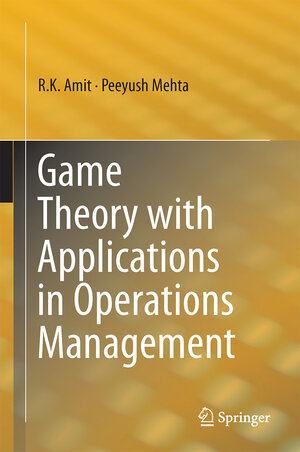
×
![Buchcover ISBN 9788132239475]()
This book combines game theory with critical applications in operations and supply chain management. The recognition and adoption of game-theoretic modelling for operations and supply chain management problems in multi-agent settings have been a hallmark of research in operations and supply chain literature during the last few years. Despite research in operations and supply chain management having embraced both non-cooperative and cooperative game-theoretic solution concepts, there is still an abundance of underutilized concepts and tools in game theory that could strongly influence the operations management problems.
The objective of this book is to provide a broad picture of solution concepts that are highly applicable to operations and supply chain settings, and to explicate these concepts with some of the relevant problems in operations management in multi-agent settings, often with conflicting objectives. The book discusses different strategic situations like games in normal form, games in extensive form, games of incomplete information, repeated games, mechanism design, and cooperative games, to solve operations problems of supply chain coordination, capacity planning, revenue and pricing management, and other complex problems of matching supply with demand. With the increasing digitization of supply chain and manufacturing, the narrative of the problems in these areas is focusing on additive and cooperative manufacturing, blockchain and smart contracts, online platforms, and shared economy. The book profits from the fact that these new issues are predominantly multi-agent settings, and lend into game-theoretical solution concepts. The intended audience of the book are research community and graduate students of operations & supply chain management, economics, mathematics, computer science, and manufacturing & industrial engineering. The book is also relevant for practitioners who use multi-agent architecture in business problems.


